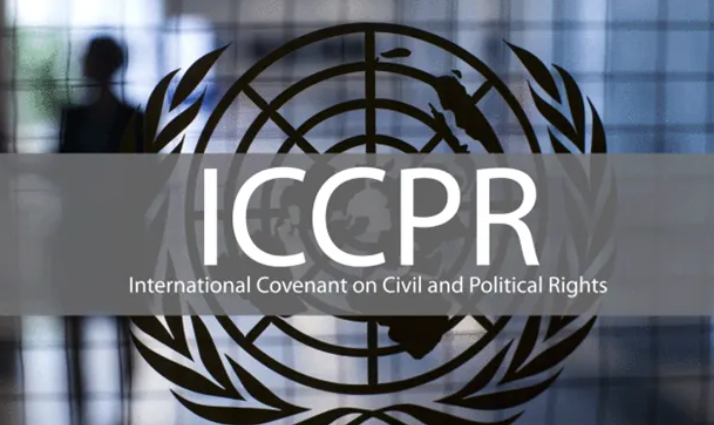4th Periodic Review by the Human Rights Committee (GS Paper 2, Polity & Governance)

Context
- India successfully completed its 4th periodic review by the Human Rights Committee under the International Covenant on Civil and Political Rights (ICCPR) in Geneva.
About the Review
- During the review, a wide range of questions were posed, covering topics such as anti-corruption measures, non-discrimination, the status of women and minorities, counter-terrorism and national security measures, the judicial framework, privacy and data protection laws, and new criminal laws.
- The review showcased India's commitment to engaging with the international human rights framework and its readiness to address concerns while continuing its efforts towards the protection and promotion of human rights for its citizens.
International Covenant on Civil and Political Rights (ICCPR)
- The ICCPR, adopted by the UN General Assembly in 1966 and enforced in 1976, is a multilateral treaty that obligates nations to respect the civil and political rights of individuals.
- This Covenant expands on the civil and political rights and freedoms listed in the Universal Declaration of Human Rights.
Universal Declaration of Human Rights
- Proclaimed by the United Nations General Assembly in Paris in 1948, the Universal Declaration of Human Rights sets out fundamental human rights to be universally protected. It has been translated into over 500 languages.
- The document consists of a preamble and 30 articles outlining fundamental rights and freedoms, enshrining the inalienable rights that everyone is entitled to as a human being, regardless of race, color, religion, sex, language, political or other opinion, national or social origin, property, birth, or other status.
- The Covenant is legally binding, and the Human Rights Committee, established under Article 28, monitors its implementation.
India's Involvement
- India became a State Party to the ICCPR in 1979. The rights and freedoms provided in the ICCPR are guaranteed under the Constitution of India and are supported by legislative and judicial frameworks.
- India has undergone three ICCPR reviews in the past, with the last review taking place in 1997.
Human Rights Committee
- The Human Rights Committee is composed of 18 independent experts serving in their individual capacity.
- It monitors the implementation of the ICCPR, reviews reports from all State Parties, conducts periodic reviews, and provides observations and recommendations.
What are Human Rights?
- Human rights are fundamental rights and freedoms inherent to all human beings, regardless of nationality, ethnicity, gender, religion, or any other status.
- These rights are universal, inalienable, and indivisible, forming the foundation for human dignity, equality, and justice.
- Human rights differ from civil rights, which are legal rights granted and protected by a government and may change as laws are amended or updated.
Significance of Human Rights
- Inherent Dignity: Human rights affirm the inherent dignity of every individual.
- Equality and Non-Discrimination: They ensure that all individuals have equal opportunities and are treated fairly and without prejudice.
- Protection from Abuse: Human rights provide a framework for holding governments, institutions, and individuals accountable for actions that violate these rights, promoting justice and accountability.
- Global Standards: International human rights agreements and treaties establish a global standard for how individuals should be treated, fostering a sense of shared responsibility for upholding these standards.
- Human Dignity in Crisis: In times of crisis, human rights provide a foundation for responding to emergencies in a way that upholds human dignity and prevents further harm.
Conclusion
- The successful conclusion of India's 4th periodic review by the Human Rights Committee underscores the nation's commitment to the international human rights framework and its ongoing efforts to protect and promote the rights of its citizens.
- This review process not only highlights the strides India has made in human rights but also serves as a reminder of the continuous effort needed to address existing and emerging challenges.
- The engagement with the ICCPR reflects India's dedication to upholding universal human rights standards and fostering an environment where the dignity and rights of every individual are respected and protected.


